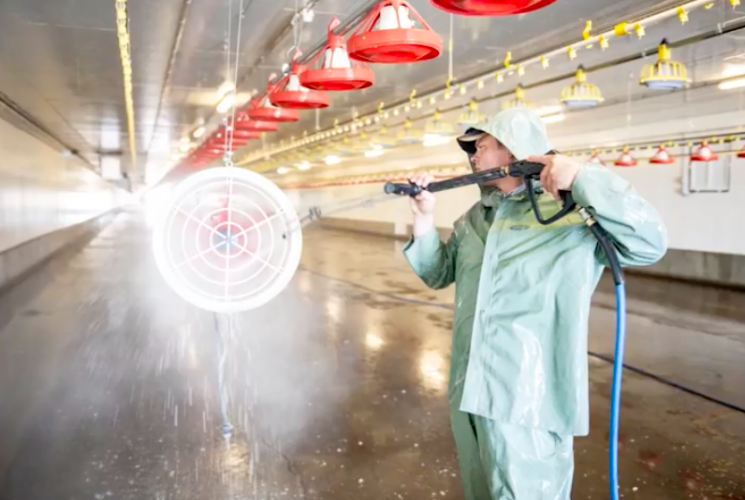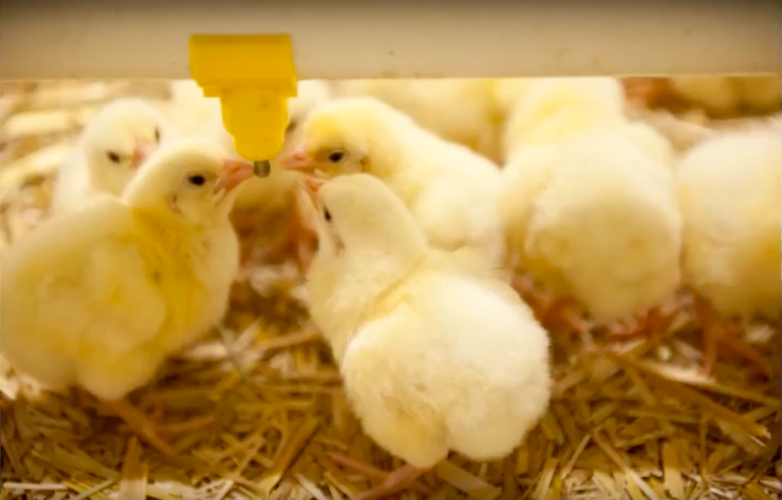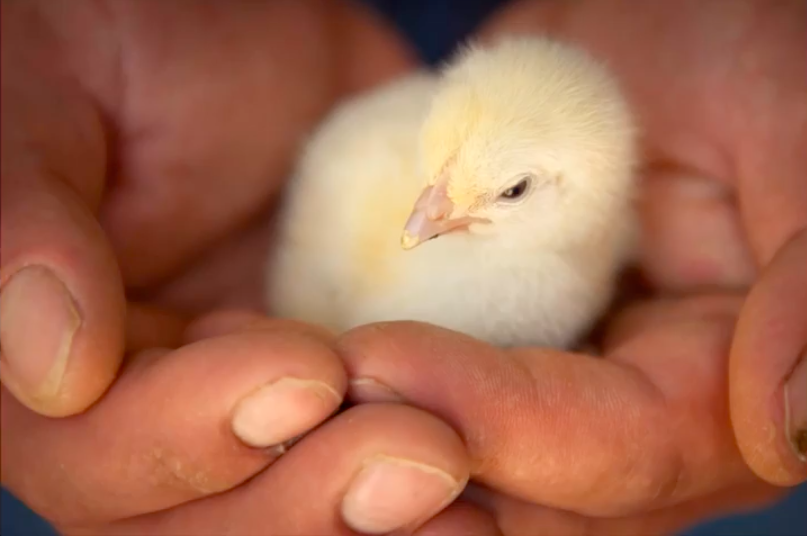Canadian chicken farmers have reported a 45 per cent reduction in water consumption following the release of a recent lifecycle assessment by the Chicken Farmers of Canada. The assessment was designed to measure the environmental and social performance of Canada’s chicken sector, from hatching egg to processor.
The 45 per cent reduction is compared to water consumption by the chicken sector in 1976. Feed production accounts for 59 per cent of the total water consumption and irrigation represents the largest contribution to water consumption.

Water conservation was one of a suite of sector’s accomplishments to address sustainability issues, including protecting animal health and welfare, ensuring worker and community wellbeing, preserving the health of the land and of Canadian farms, and contributing to the Canadian economy by providing affordable food to Canadians.
Among the findings of the assessment conducted by Groupe AGÉCO, the report noted that Canadian chicken production has the lowest carbon footprint in the world.
Benoît Fontaine, chair of Chicken Farmers of Canada said, “Our sustainability journey is a process of continual improvement. We have come a long way with the implementation of on-farm programs, and with the growth in our industry which has contributed to the Canadian economy and helps support rural communities. But we’ll always have more work to do and we will continually evolve to improve our practices and deliver on the expectations of Canadian consumers.”
A copy of the key findings of the assessment entitled, Sustainability Assessment of the Canadian Chicken value chain, is available online.










